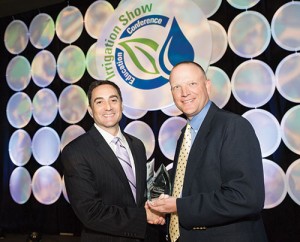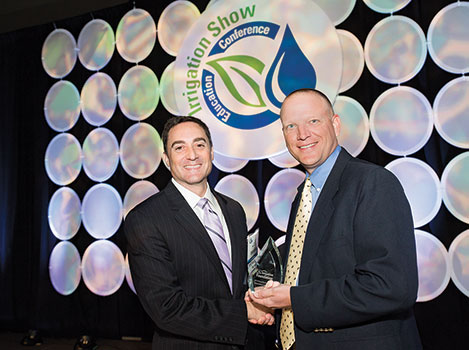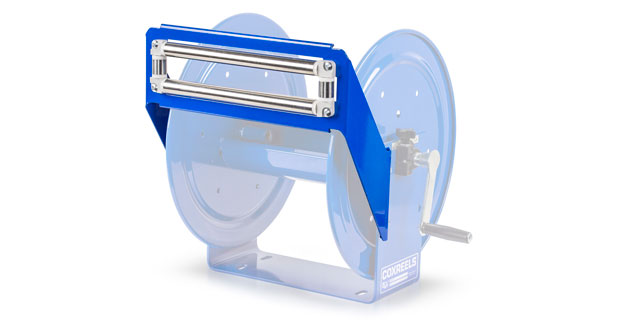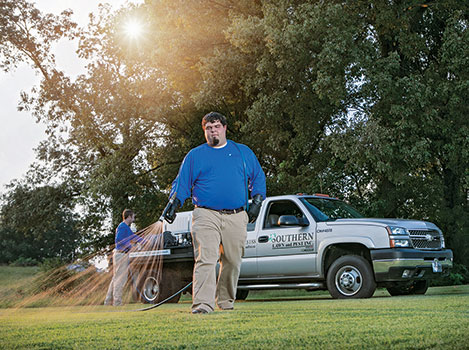
Michael Dukes, Ph.D., P.E., CID, is an irrigation specialist and professor in the University of Florida’s Agricultural and Biological Engineering Department. He’s also director of the Center for Landscape Conservation and Ecology, which strives to protect Florida’s natural resources through responsible landscape management. Widely published, Dukes’ research centers on water management and quality.
In October, Dukes’ efforts to create efficient irrigation solutions that protect the environment earned him the Irrigation Association’s (IA’s) 2014 Excellence in Education Award. We caught up with him in November, shortly before he accepted his award at the Irrigation Show & Education Conference in Phoenix. He shared with LM his views on some of today’s most relevant water conservation issues.
Q: How much does the public understand the importance of water conservation nationally?
A: I think the public generally understands water conservation when they are affected by it. That is, when they don’t have enough water, the importance hits home. Due to the regional nature of water shortages, some populations are more cognizant of water scarcity than others. Those affected by the drought in California right now would be a good example.
Q: How much has the public’s understanding of water conservation grown over the last decade?
A: Despite the fact that I believe the public’s understanding of water conservation could be higher, I believe the awareness has increased substantially in the last decade. But more importantly, public agencies, manufacturing, codes and standards have come a long way in the last 10 years to essentially embed water conservation into our lifestyle.
A good example is the U.S. Environmental Protection Agency’s WaterSense program that has created labels for water-efficient products, ranging from toilets and showerheads to weather-based irrigation controllers and more. If not already mainstream, these products are becoming so, such that they will be the new norm—and conservation seamless—in our everyday life.
Q: What about members of the green industry? as a whole, How many would you say understand water conservation?
A: The green industry is very aware of conservation, and at the manufacturer and industry level there has been diligent work for the last decade to implement water-conserving devices and programs.
A great example of a decade-plus of work is the IA Smart Water Application Technologies (IA-SWAT) effort that brought together the irrigation industry, public agencies and water purveyors to find solutions to the increased water demand attributed to irrigated landscapes.
Though this group has been very successful in building open lines of communication between interested parties and encouraging development of water-conserving technologies, there is still more work to be done. At the ground level—the level of individual builders and irrigation contractors—I believe work is still needed to get these audiences trained in the latest advances in water-conserving technologies and how to properly apply them.
Q: How should contractors be trained in such advances?
A: By doing things like North Carolina is doing, for example. Within the last five years, the state implemented mandatory licensing for irrigation contractors. The concept has already picked up momentum, but the industry is shy on requiring these things that on the surface seem to be barriers. However, once the industry learns more about them, they usually get on board with mandatory requirements.
Q: Per your observations of industry members, What’s the No. 1 missed opportunity to save water?
A: The No. 1 missed opportunity, though it may not be the No. 1 water saver, is regular maintenance. Things like broken heads and leaking main lines are easy to spot even for the nonexpert. Simply walking an irrigation system at least once a year and repairing these types of things is really an easy win.
Q: What advice do you have for industry members to better sell smart irrigation and water management to their clients?
A: For industry members to sell the technology or management services to their clients, I think it’s about the payback, convenience or features. If they can show a device pays for itself in a year or two, then that’s usually a win. Or if a device offers the end user desired convenience, quick payback may not be as essential. For example, a smart controller with a remote manager that has cloud access and flow monitoring may be a logical choice. Those are expensive things, but they offer a lot of convenience.
Q: Are students interested in making landscapes more water-efficient, too?
A: There is some interest from students in landscapes, but the primary driver for students seems to be conservation and efficiency. They’re more interested in the environmental angle versus the horticultural angle. But when they get into it, they come to understand it’s one thing. Those ideas can be applied to landscapes as well as agriculture. Irrigation of plants is irrigation of plants, whether for food or aesthetics.


